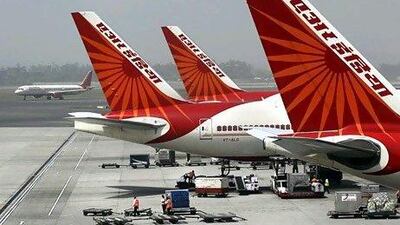The expansion of Gulf airlines into new territories in recent years has provoked protectionist responses from rival carriers worldwide, with the latest fault lines emerging in India.
But restricting the influence of Gulf airlines in India could damage the profitability of domestic airlines on the subcontinent, experts say.
India's national auditor last week called for Gulf carriers' services to the country to be reduced because they disadvantaged Air India, the country's ailing flag carrier.
But commentators say Indian airlines have much more to lose from such a drastic move and that Air India's lack of profitability is not a competition issue. "They're playing the blame game, there's very little substance to their critique," said Saj Ahmad, an analyst at FBE Aerospace in London. "Air India is no different to Emirates [Airline]. Both are state-supported, they both have reciprocal rights, one is prospering and one is not."
In its report to parliament last Thursday, the comptroller and auditor general (CAG) of India said the ministry of civil aviation had ignored "the interest of the Indian carriers including that of Air India" in allowing Middle East airlines to continually add flights to their Indian routes.
The report focused particularly on Emirates Airline as a cause of Air India's plight.
The dominance of Emirates Airline has been the subject of a number of complaints from airlines and countries in the past year, including a row with Air Canada that evolved into a diplomatic row between the UAE and Canada.
Globally, the consensus remains that the liberalisation of airspace improves competitiveness and the growth of economies involved.
The Economic Impact of Air Service Liberalisation, a report conducted on behalf of organisations such as Airports Council International, World Tourism and Travel Council and the International Air Transport Association, found that traffic growth after the liberalisation of air services agreements between countries typically averaged 12 to 35 per cent. Tim Clark, the president of Emirates Airline, makes the carrier's policy on liberalisation clear on its website.
"More and more countries are recognising that liberal air access has a multiplier effect on their economics and protection of their national carriers no longer stacks up in the cost-benefit equation or serves their national interest," he said.
Mr Ahmad believes Indian carriers such as Air India and IndiGo, which began services to the UAE only this month, would be "killed" by the move to restrict Gulf carriers, because the UAE would also apply similar restrictions.
"The UAE would hit back straight away," he said.
"The competitive landscape has changed and Air India thinks it can survive without structural change itself."
Vayalar Ravi, India's civil aviation minister, announced recently that Air India earns 360 million rupees (Dh28.29m) a day from its operations but spends 570m rupees daily.
The company reported a net loss of 60 billion rupees in the fiscal year that ended on March 31, struggling under a debt burden of 400bn rupees.
"It is a widely known fact that Indians do not love or opt for their national carrier," The Times of India declared in an editorial comment at the weekend.
"The fact that the CAG report has sidelined the low quality of services provided by [Air India] to its passengers including the lack of a passenger-friendly attitude, has generated widespread dissatisfaction from the general public," it said.
India is the ninth-largest and fastest-growing aviation market in the world, with passenger numbers expected to grow from 52 million last year to 180 million by 2020.
Kapil Kaul, the chief executive for the South Asian region at the Centre for Asia Pacific Aviation, a research group based in New Delhi, told The National that Air India's problems were due to mismanagement.
"Fundamentally, the airline has reached a dead end," he said.

